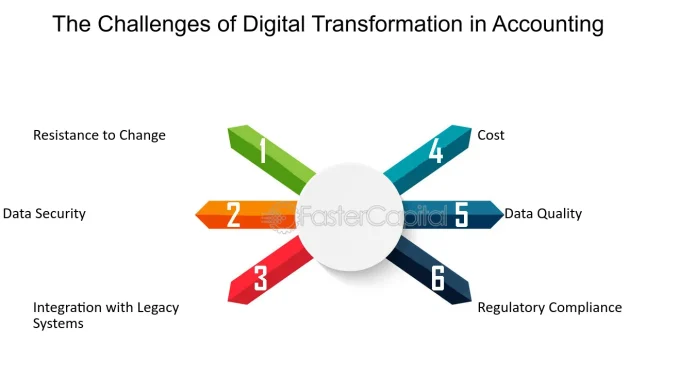Digital Transformation in Regulatory and Accounting Practices
Regulatory and accounting practices are no strangers to change. But digital transformation has rewritten the rulebook. Now you can forget the slow as well as lengthy processes of the past. The world is shifting toward agility, precision as well as insight. It is all powered by technology. This is more than a trend. It is an ideal shift that is reshaping industries.
Importance of Digital Transformation in Regulatory and Accounting Practices
Regulatory compliance and virtual assets regulatory authority, as well as accounting processes, relied on manual workflows as well as a reactive approach for decades. The result involves inefficiencies, errors as well as a limited capacity for growth. This is where digital transformation. It is a strategy that integrates technology to streamline operations to enhance accuracy while enabling you to make better decisions.
Digital tools are revolutionising accounting and regulation while unleashing exponential potential. Automation minimises human error while machine learning delivers better insights as well as blockchain ensures greater transparency. This helps to ensure that businesses remain compliant, competent as well as forward.
Impact of Digital Transformation Regulatory and Accounting Practices
Digital transformation in finance, regulatory and accounting is critical for reimagining existing processes while improving decision-making with data-driven insights. It helps to establish a resilient as well as future-ready framework. This can adapt to changing regulatory requirements, technological improvements as well as market dynamics. The following are the primary reasons for its importance.
Enhanced Efficiency in Financial as well as Accounting Operations
Automation streamlines operations such as budget planning in finance and reconciliation in accounting, resulting in significant time savings on repeated processes. This improves the capability for strategic analysis in both domains. It results in speedier closings at the end of the month and yearly report preparation.
Improved Accuracy in Accounting and Financial Reporting
Digital technologies eliminate errors in manual data entry It results in more accurate bookkeeping along with payroll processing as well as financial statement preparation. AI-powered analytics improve the reliability of financial decisions by ensuring precise cash flow predictions as well as risk assessments.
Real-Time Insights for Better Decision-Making in Finance and Accounting
Analytics tools offer rapid access to financial performance information, cash situations, and expense tracking. SS&CO Global UK now have real-time access to operational data. It allows them to correct inconsistencies quickly while facilitating more effective audits.
Streamlined Regulatory Compliance in Accounting and Finance
Automation streamlines regulatory compliance for accounting as well as finance processes. Accounting teams can easily process tax filings to keep precise audit trails. Finance teams ensure compliance with financial requirements by monitoring activities in real time.
Cost Optimisation in Finance and Accounting
Cloud-based platforms centralise data storage for accounting and financial activities, lowering the costs associated with maintaining legacy systems. Automation solutions save expenses by eliminating manual errors and increasing process efficiency across functions.
Better Collaboration Between Finance and Accounting Teams
Digital transformation combines systems across various functions. It will enable smooth communication along with data sharing. This integration breaks down barriers while speeding up reporting cycles and enhances the accuracy of financial data consolidation.
Boosting Efficiency and Accuracy in Finance and Accounting with Automation
Automation streamlines key tasks which include the following.
· Budgeting
· Forecasting
· Invoicing
· Reconciliation
It will reduce reliance on manual processes. It minimises human error while enhancing accuracy in critical operations as well as supporting more efficient reporting, compliance, and workflow optimisation.
The advantages of digital transformation in accounting have shifted from being optional to essential. It has underscored its critical role in maintaining competitiveness as well as efficiency. These key benefits of accounting compliance software showcase the transformative impact of integrating technology into accounting practices.
Boosting efficiency, improving data accuracy, and delivering other significant benefits by offering real-time insights, cloud-based solutions have the potential to revolutionise the way accounting firms UK operate.



















